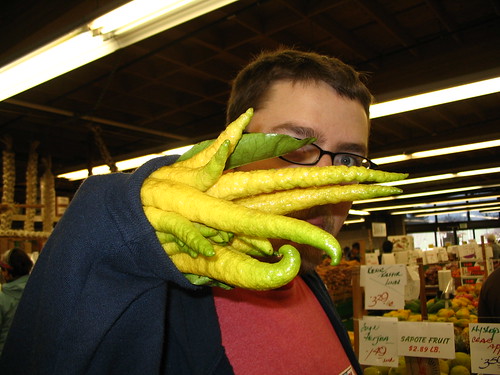Writing vs. Art
First off, I have to say I'm almost impossibly pleased to see this interview on the Powell's website. Even five years ago, it's unlikely that even as amazing and forward-thinking a bookstore as Powell's would have posted such a lengthy interview with two cartoonists who are essentially unknown outside of non-superhero-comics-reading circles. Five years ago, maybe. Ten, not a chance. Alison Bechdel is someone whose work I'm not really familiar with, as it has in the past mostly appeared in gay-oriented publications - she draws a strip with one of the best titles I've ever heard, "Dykes to Watch Out For." Craig Thompson, on the other hand, is one of my absolute favorite cartoonists. I'm firmly convinced that twenty years from now, people will be discussing his "Blankets" in the same context as Will Eisner's "A Contract With God" and Art Spiegelman's "Maus" - works both brilliant and absorbing in their own right, as well as historic milestones of the comics form.
In the interview, Bechdel and Thompson discuss one of the most fascinating issues for "graphic novelists," that of the interplay of writing and art. Bechdel loves the writing, but finds doing the art a chore. Thompson loves the art and has trouble with the writing. What I find most fascinating about it is that both of them, in spite of disliking and/or lacking confidence about one of the medium's two disciplines, chose comics anyway. Bechdel could have writen prose. Thompson could make a very comfortable living as an illustrator. But they both chose to do comics, based on what comics can do that prose and simple illustration can't.
To do comics, if you can draw but can't write (which Thompson can), you need a collaborator. If you can write but can't draw (which Bechdel can), you need a collaborator. If you want to do it all, you have to be fairly adept in two disciplines. It's not all about drawing nice pictures, as guys like Todd McFarlane and Rob Liefeld found when they struck out on their own in the early '90s (of course many, including myself, would dispute whether Liefeld is actually capable of drawing nice pictures). Nor is it enough to write a great story, lovely prose or clever dialogue - Neil Gaiman's "The Life of Emperor Heliogabolus" in "24-Hour Comics" demonstrates this.
Obviously, there's no obligation to do the writing and the art. Many of the greatest writers in comics don't draw - Alan Moore is widely considered one of the best, if not the best, writer in the comics field, and he doesn't draw, and with the occasional very rare exception, neither does Gaiman. Alex Ross paints absolutely breathtaking superhero work, but doesn't do much writing.
Still, recognizing how difficult each discipline is on its own makes one appreciate the rare genius who achieves the perfect synthesis of story and art; Eisner, Spiegelman, Thompson, some of Frank "The Tank" Miller's work, Jeff Smith's "Bone"...
And really, the interview mostly just made me really want to read "Fun Home."


